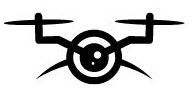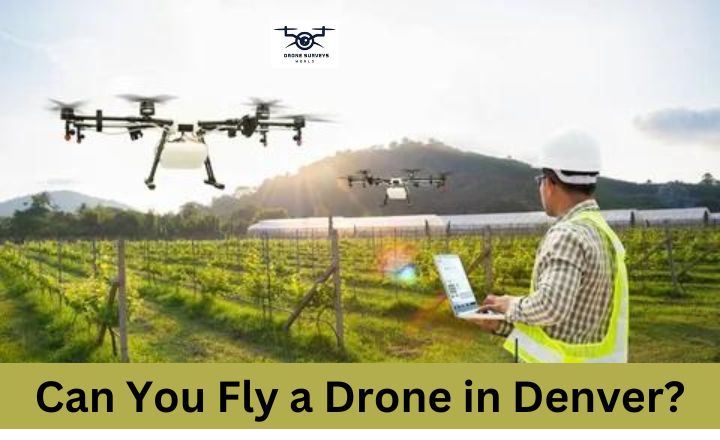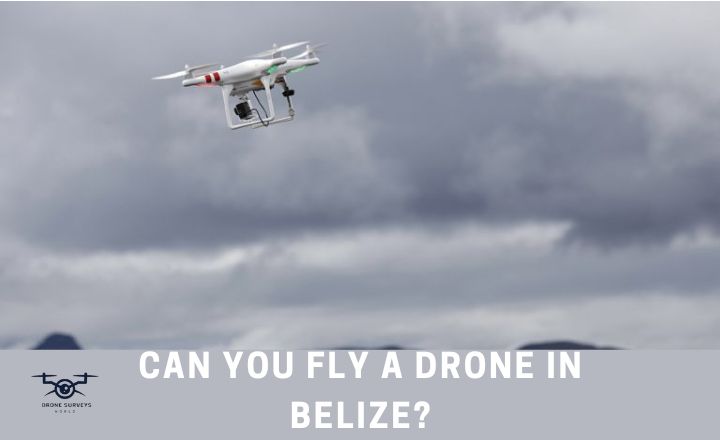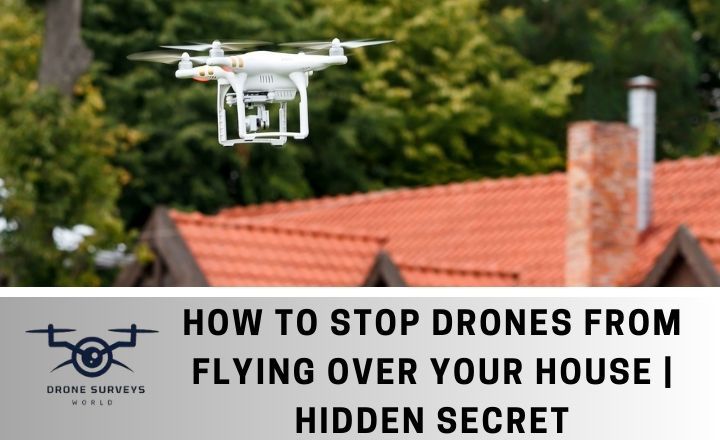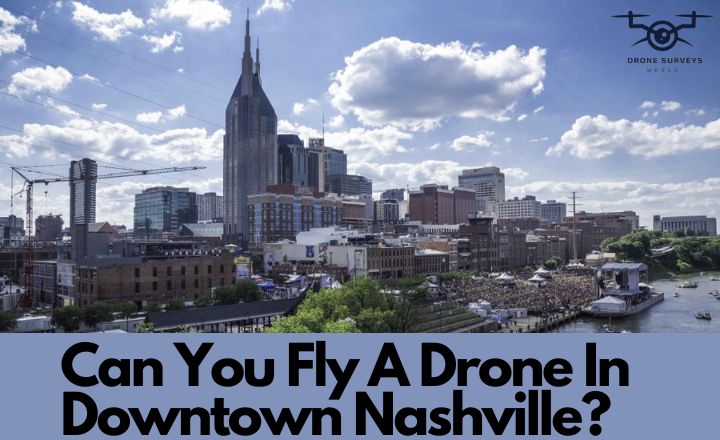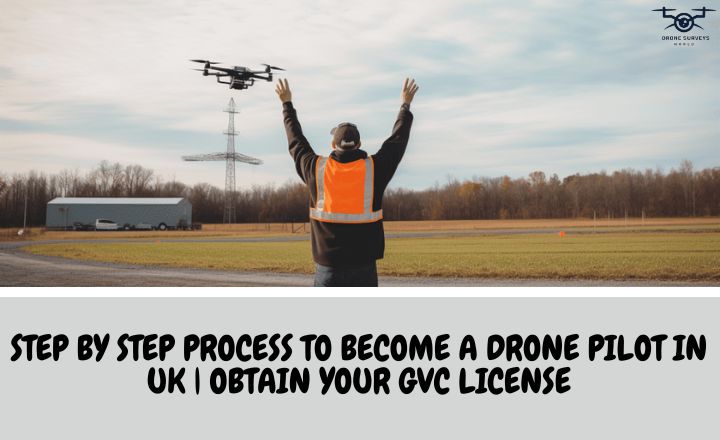In the Rocky Mountains, Denver mixes city life with beautiful nature. People wonder if they can fly a drone in Denver. The city’s skyline and scenery make it an excellent place for drone enthusiasts. But, understanding the rules and limits for flying drone in Denver can be tricky. Let’s explore the rules for flying drones in Colorado and Denver.
Can I Fly a Drone in Denver?
Flying drones in downtown Denver is restricted. In parks, drones are allowed only in specific areas. To use drones at events on Denver streets, alleys, and sidewalks, you need a Denver Film Permit. Following the rules when flying a drone in Denver is essential to have a safe and fun time and avoid legal problems. Knowing where you can’t fly, like near airports or national parks, is important to avoid bothering other people in the air.
Colorado Drone Laws (General information)
Drone laws depend on why you are using the drone. Different rules apply to commercial pilots, hobbyists, and government workers. The state has laws about using drones in other places and for other activities.
It is essential to know both federal rules and state laws when flying a drone in Colorado. Understanding the laws can help avoid problems while using drones in the state. Following the drone regulations Colorado is crucial for safe and legal drone use in Colorado, whether for fun or work.
Guide for recreational and commercial use of drones
Let’s explore Colorado’s drone rules in this guide. Learn what to remember when flying a drone in Colorado.
Fly your drone as low as possible
When you fly your drone, keeping it below 400 feet is best. This height allows you to capture excellent footage and have better control. Stay low to get detailed shots and feel more connected to the scenery.
Flying under 400 feet also reduces the risk of hitting other aircraft or objects in the sky, protecting your drone and preventing accidents that could cause harm.
Hobbyists and commercial drone users must follow this height limit for safe and responsible flying. So, when you fly your drone, consider exploring low-altitude flights while following the rules and maintaining a clear view below.

Weight
Drone users need to understand weight rules. Drones weighing 0.55 pounds (250 grams) and 55 pounds (25 kilograms) must be registered. This helps promote safe ownership and operation. Registration tracks drones and holds operators responsible for safety.
When buying a drone for fun, recreational users should know the weight limits to follow the law. Commercial operators must also obey weight limits to avoid legal trouble. Following these rules is essential for enjoying drone flying, whether for fun or work.
Locations
When flying drones, It is essential to follow safety rules and protect sensitive areas. Prohibiting drone flights in certain places helps protect wildlife, privacy, and important buildings. Knowing the rules helps both casual and professional drone users fly responsibly.
By obeying no-drone zones and getting permission near airports, fans can take great aerial photos while staying safe. Using drones for fun or work offers many chances to capture excellent footage from new angles.
Following rules about where to fly improves the experience by encouraging good behavior and following aviation laws. Drone operators must know about restricted areas and get permission when flying near airports to ensure smooth and safe operations.
Registration
When registering your drone with the FAA, it is important to provide accurate and complete information such as your name, address, and email. Giving all the required details promptly can speed up the registration process and prevent delays in getting approval to use your drone for fun or business.
Registering your drone correctly follows a rule and ensures safety in the skies where various aircraft operate. By understanding the significance of following these rules, drone users can comply with the law confidently and responsibly. This promotes a culture of responsible drone use for both recreational and commercial purposes.
Identification
After you get your aircraft registration certificate and confirm ownership, you will get a unique ID number for your drone. This number is like a digital fingerprint for your drone and is vital for identifying it in case of incidents or violations.
You must show this number on your drone, not just because it’s a rule, but also to help authorities find the owner quickly in emergencies. Following the rules for showing the ID number is essential for recreational and commercial drone users to ensure things run smoothly.
It shows that you follow aviation rules and care about safety and responsibility. By seeing the ID number as more than a formality, drone fans can help make the airspace safer for everyone and support innovation in unmanned aviation.
Flying Guidelines
When flying drones, keep a safe distance from people and vehicles to avoid accidents. This rule applies to both recreational and commercial drone use. Flying overcrowded areas can be dangerous, so it is essential to stay away.
Avoid helicopters and low-flying planes to keep the airspace safe. By following these rules, drone operators can help make the airspace safer for everyone. The increasing use of drones has raised concerns about safety near people and vehicles. Drone users must understand the risks of flying in busy areas.
Respecting the flight paths of helicopters and planes is crucial for safety and professionalism. By following these guidelines and being careful while flying drones, users can enjoy this technology responsibly and reduce risks to themselves and others.

Colorado’s federal drone regulations
Colorado’s federal drone rules are essential for safe and responsible drone use. These rules give specific guidelines for drone operators on registration, flight restrictions, and privacy.
Drones must be registered with the FAA before flying in Colorado, whether for fun or work. No-fly zones are set up in airports, military areas, and national parks to avoid conflicts with planes and keep people safe.
Privacy is also important, with rules against drones taking pictures or videos of private property without permission. Drone fans in Colorado must know and follow these rules as drone use grows.
Recreational Flyers
Recreational flyers in Colorado need to know the federal drone rules, especially in cities like Denver. Flying for fun is enjoyable, but it is essential to follow these safety rules. Understanding the difference between recreational and commercial use is critical, as it affects the rules you must follow.
When flying for fun, remember there are limits on altitude, distance from airports, and no-fly zones. By knowing Colorado’s rules for recreational drone use, you can fly safely and legally. Responsible drone flying improves your experience and helps show drone users in a positive light in the community.
Commercial operators
Commercial drone operators in Colorado must follow both state and federal rules. The FAA Part 107 rules cover drone pilot certification, but Colorado may have extra rules. Operators need to know these rules to follow them and avoid legal problems.
Colorado’s diverse terrain and landscape make flying drones challenging. Operators need to handle different elevations, weather, and airspace rules. They must be skilled and flexible to fly drones safely in these conditions. Overcoming these challenges can lead to new ways to use drones in industries like farming, forestry, and search-and-rescue in Colorado.
State Drone Laws in Colorado
Colorado’s federal drone regulations require operators to keep drones at least 100 feet above ground level when flying over people or property. This rule aims to improve safety and privacy, especially in crowded areas. Colorado law also prohibits using drones to interfere with first responders during emergencies to minimize disruptions.
In national parks in Colorado, operators must follow strict guidelines set by Colorado Parks and Wildlife to protect wildlife habitats and preserve the environment for visitors. These rules balance technological innovation with environmental conservation in the state.
Code of Colorado Regulations 406-0, Article IV, Section C
Using a drone to help find or track animals for hunting is illegal.
HB 1070 / 2017
HB 1070 of 2017 is an important step in using drones for government operations. Colorado is showing its commitment to using new technology for public safety by requiring a study on drones by the Department of Public Safety. The state is also starting a pilot program to train drone operators for emergencies like fires.
Colorado is following federal drone rules, showing that HB 1070 is not just about new technology but also about following existing laws. This shows policymakers’ challenges when using the latest technology in government work. As drone technology advances, laws like HB 1070 are essential for using drones responsibly and effectively for public safety.
State Parks of Colorado Regulation #100-c.24
Drone enthusiasts in Colorado face rules when flying in state parks. Most areas don’t allow drones, but some places like Cherry Creek State Park and Chatfield State Park’s model airfields do. These spots give drone users a chance to fly legally.
Sometimes, parks may let drone users fly for business reasons. It’s vital to ask park officials before flying in restricted areas. Following these rules keeps the parks safe for wildlife and nature.
Places to fly a drone near Denver, CO
Red Rocks Park and Amphitheater are among the top spots for drone flying near Denver. This iconic location offers stunning views of the surrounding red rock formations and the city skyline, making it a perfect backdrop for aerial photography. Just be mindful of any concerts or events at the theatre, as airspace restrictions may be in effect during those times.
For a more secluded and serene drone flying experience, head to Mount Falcon Park. This expansive park features miles of hiking trails and open space with minimal air traffic, allowing you to capture sweeping panoramas of the Rocky Mountains and Denver foothills. Remember to respect wildlife and other visitors while flying your drone in this natural setting. It is necessary to know about Denver drone laws.

East Reservoir
You feel peaceful at East Reservoir on West Florida Avenue and Kipling Parkway in Lakewood, Colorado. The 14-acre water reflects the sky’s colors, creating a calming view. This area near Denver is entirely of nature and away from the busy city life.
The East Reservoir is a place for wildlife, too. Ducks swim on the water, and birds sing in the trees. Visiting here shows how cities and nature can live together peacefully, reminding us to protect these spaces for the future.
Suhaka Model Airfield (AMA)
The Suhaka Model Airfield in Englewood, Colorado, is a popular spot for aviation enthusiasts who love flying. The Denver R C Eagles manage it and have been promoting the sport since 1960. Located in Class D airspace, pilots at Suhaka Field must be skilled in managing aviation traffic and safety.
The airfield is unique because it separates airspace for fixed-wing and multi-rotor aircraft, reducing conflicts during flights. This organized approach improves safety and efficiency for all members.
Finding the Suhaka Model Airfield while exploring Cherry Creek State Park can feel like discovering a hidden gem in nature. The mix of radio-controlled aviation and natural surroundings adds charm to this hobbyist destination.
Chatfield State Park RC Field
In Littleton, Colorado, drone enthusiasts can fly their drones at Chatfield State Park RC Field. The park has a large reservoir and is managed by the Jeffco Aeromodelors RC Club. The park’s size increased in 2017, making it an excellent place for drone operators to take photos and videos. Flying over the park, you can see beautiful mountains.
The park offers freedom and many possibilities for experienced and new pilots. Whether you want to take wide shots or detailed photos, Chatfield State Park RC Field is a great place to capture the park’s natural beauty with your drone.
Drone license colorado
In Colorado, you need a drone license to fly drones for work. To get one, you must pass a test on FAA rules and safety and register your drone. Colorado stands out for its focus on protecting the environment during drone flights.
Pilots are urged to check the impact on nature and follow the rules when flying over parks and wildlife areas. Drone laws Colorado and the licensing process involve businesses and government teamwork to promote safe and ethical drone use. They offer training that covers technical skills and moral behavior. Colorado is leading the way in promoting responsible drone use, setting an example for other states.
Conclusion
Fly a drone in Denver has specific rules that must be followed for safety and to obey local laws. To operate a drone responsibly in the city, you must know the airspace limits, get permits, and consider privacy. There are approved areas for drone flights, but it’s crucial to be careful and follow the rules to avoid accidents or legal trouble. By learning the rules and being cautious, drone fans can have fun flying in Denver while keeping the airspace safe. Always fly responsibly and follow the local laws for an excellent drone experience in Denver.
Frequently Asked Questions
Where can I fly my drone in Colorado?
You can legally fly your drone in designated areas like public parks in Colorado. Popular spots include Red Rocks Park, Chatfield State Park, and Cherry Creek State Park. These places have great views and enough space for flying drones.
Where to fly a drone near me?
Before flying a drone nearby, check the rules set by the FAA in the US or your country’s aviation authority. Some places have no-fly regulations or zones for drones, so research this info first.
